Photo
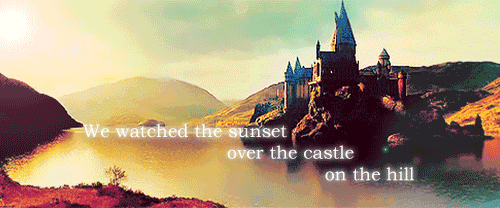
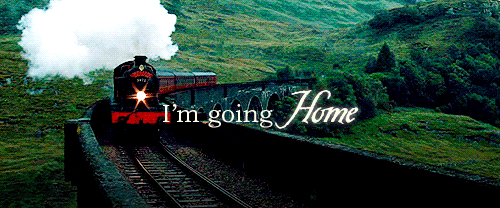
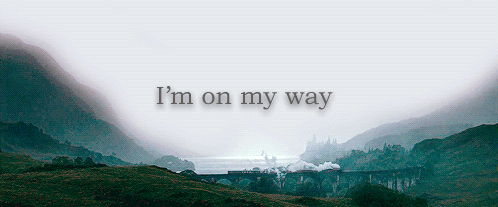
Harry Potter Aesthetics || Ed Sheeran Lyrics
15 notes
·
View notes
Photo

The houses of Hogwarts…
6 notes
·
View notes
Photo

11K notes
·
View notes
Photo
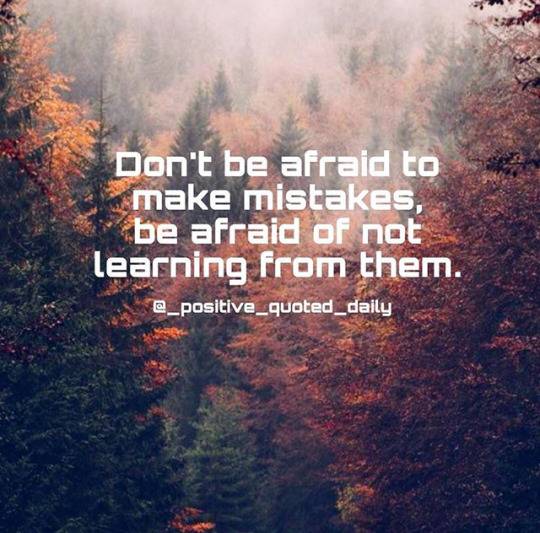
Grow beyond.
64 notes
·
View notes
Text
Chinese Media - Censorship or Success?
China and social media have long been an interesting case study for virtually anyone in the media industry. We all are well aware of censorship laws in China and we tend to believe that Chinese citizens are sheltered and suppressed because they do not have access to basic social media platforms and digital search engines that almost the rest of the world does. However, is this really the case? Let me get down to business.

When looking at Chinese media from a mostly unbiased point of view, you come to realise that although they are blocked from any Western media, including things as basic as Google and Youtube, the replacements might be even better! Hard to believe? I know, just hear me out.
In a very interesting video, a panel of experts discuss how social media is changing China and Asia. Far from being a minor trend, social media is having a deep, fast and far-reaching impact on politics, business and culture in China and across Asia.
Despite social media platforms like Facebook being banned in the country, there are 673.5 million social network users in China, with its local social networking sites such as Tencent Weibo attracting plenty of users on its own.

China’s Facebook substitute, WeChat, is actually not just the Chinese Facebook. With 1.08 billion active users monthly (compared to Facebook’s 2 billion monthly active users worldwide) and 619.6 million daily active users, WeChat has a penetration rate of 85.5%. It is an all-in-one messaging app which also provides games, online shopping, and financial services, offering more than 10 million “Mini-Programs”. Users can get almost everything they need from WeChat, leading to its classification as a “Super-App”, and has risen to become the most popular social media in China.
WeChat offers far more than any Western messaging app. In terms of comparison, it can be likened to a combination of Facebook, Whatsapp, Google News, Tinder, and Pinterest all in one app. It’s used for restaurant bookings, flights, making investments, shopping, paying bills, hailing taxis, transferring money and creating posts on their Newsfeed. It allows companies and celebrities to create official accounts to generate content for promotional purposes, allowing for one-to-one personalised interaction between brands and users. This allows brands to communicate directly with their followers through the messaging functions on their account, making WeChat one of the most popular tools for social media marketing in China.
So yeah, they don’t have Facebook. But seriously, who even cares? Facebook is so outdated these days and can’t do a tenth of what WeChat can. Not to mention, WeChat is only one of hundreds of different and innovative Chinese social media platforms that us in the West can only dream of having. We’re not even on their level!
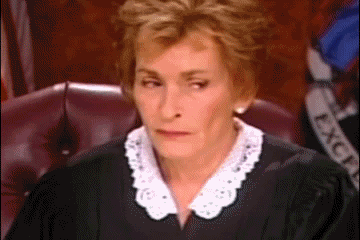
Even when Western “powers” attempt to bring China down, it won’t impact them. The combined impact of the Trump administration’s trade war on China and export blacklisting of Huawei is further strengthening the ‘Boycott Apple’ movement in the country. A complete backfire to Trump’s plan because guess who’s suffering now? Oh yeah, the American mobile phone industry!
Poor iPhone sales in China were almost entirely responsible for Apple badly missing its original holiday quarter guidance, and it looks like things could get worse. A report in the South China Morning Post says that while Huawei will be hurt in the short-term, Apple could take the longer-term hit from the policies!

You could say that China is being censored or deprived or oppressed. Seriously, though? It’s a load of Western supremacist bullshit. Just because we live in the West does not mean our platforms and product for that matter, are superior to China’s I mean, clearly. They are thriving and America is suffering. Hehe. Thanks for coming to my Ted talk.
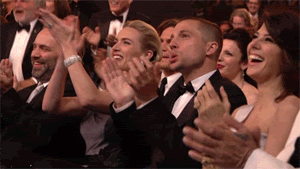
0 notes
Text
Call of Duty & Consequences
That one excuse every psychotic mass shooter makes - “I was bullied when I was younger and turned to violent video games”. Oh, boo hoo
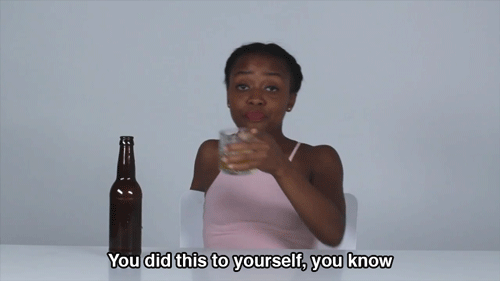
But there actually is a correlation between avid players of violent video games and those violent tendencies manifesting in those children (and most of the time not children).
The American Academy of Pediatrics Council on Communications and Media found this evidence strong enough to issue a policy statement, noting that there is a proven scientific connection between virtual violence and real-world aggression and lamented that unfortunately, media reports frequently present ‘both sides’ of the issue by consulting a contrarian academic.
In other words, our lovely news outlets are concealing the entire truth from us about the repercussions of playing violent video games by bringing in people they know will oppose any moral panic. Why would they do that, you might ask. Quite simply, the gaming industry is a billion dollar one, selling millions of copies of games practically every day to every country of the world. There’s no way a meagre couple hundred deaths a year from mass shooting is going to stop them from producing video games.
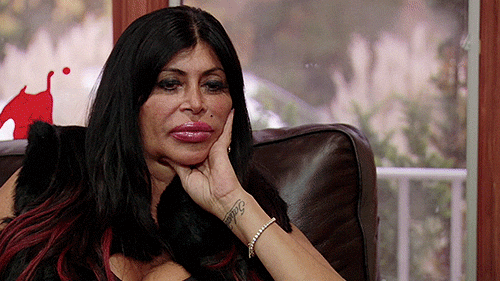
There is new research to suggest that not only do violent video games increase aggression in the player, it can also severely and negatively impact their social network. Benefits-of-social-gaming theory DEBUNKED!
According to Tobias Greitemeyer, egocentric social networking analyses show that playing violent video games is associated with increased aggression, which then spreads among connected individuals. Even participants that do not play violent video games themselves reported more aggression when their social network consists of individuals who do play violent video games. Psychologists and the public (that includes me and should include all of you) alike have been concerned that violent video game exposure has the potential to increase aggression on a societal level. We are at great risk of causing moral panic to the levels it was in the 90s following the releases of Doom and Mortal Kombat.

And you know, maybe I am over-exaggerating the consequences of playing violent video games because I am completely opposed to anything remotely violent or graphic (I’m a wimp, sue me). But I know I’m not the only one [insert me wailing sad Sam Smith song]
The argument that video games and other forms of violent media could be to blame for mass shootings became common after the Columbine massacre all the way back in 1999 when two students shot and killed 13 people at Columbine High School outside Denver.
In 2007, one month after an armed student killed 32 people at Virginia Tech, Mitt Romney said that violence in music, movies, TV and video games were to blame for the carnage both there and at Columbine.
And in 2012, after a gunman killed 26 people, mostly young children, at Sandy Hook Elementary in Newtown, the National Rifle Association put the blame on the entertainment media, calling the video game industry a “corrupting shadow industry that sells, and sows, violence against its own people” — naming games like Bulletstorm, Grand Theft Auto, Mortal Kombat and Splatterhouse.
On another note, funny how all these huge school shootings happen in America...but let’s not go there...
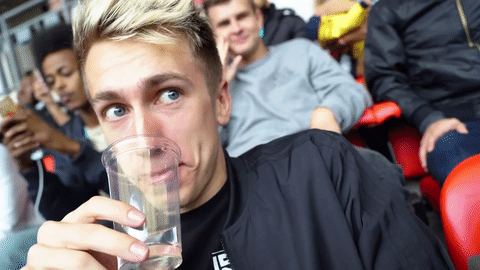
Greitemeyer further says that although some studies failed to find significant effects, meta-analyses showed that violent video game exposure significantly increases the accessibility of aggressive thoughts, hostile effect, and aggressive behavior and that these effects are consistently found in experimental, cross-sectional, and longitudinal studies. It thus appears that playing violent video games does affect the player's social behavior outside the virtual world. Given the widespread use of violent video games, there has been a debate about their negative impact on a societal level.
Although the effect of violent video game exposure on aggression is not large, even small effects can have a negative impact on a societal level when many people are exposed to it (and they most certainly are). Thus, it has been argued that violent video game exposure could lead to societal harm. The present research tests the idea that violent video game exposure may not only influence the player but also the player's social network. If not only players of violent video games but also their social network respond with increased aggression, concern about the harmful effects of playing violent video games is even more warranted. SO DON’T COME AT ME FOR BEING DRAMATIC.
Ultimately, the debate about whether or not violent video games lead to violent behaviour in real life is an ongoing one. From what I’ve read and come to believe, I think there is definitely a correlation - whether it’s a strong one or not, only time will tell. For now, if you want to play horrid, violent, gruesome inhumane games in your spare time, you do you.

0 notes
Text

230 notes
·
View notes
Text

Mr Darcy
104 notes
·
View notes
Text

Post Malone - Sunflower
112 notes
·
View notes
Text

12 notes
·
View notes
Text
Personal health...but also public?
The health industry is increasingly turning to social media and online platforms to support, promote and increase the spread of information and data. Ultimately what this does is “improve” both personal and community health to becoming public...introducing this idea of ‘public health’.

Really though, is public health truly beneficial? Because it sounds to me like it could lead to an invasion of privacy and possibly even instead of raising awareness, might lessen the impact health issues have on the public now with the increasing amount of exposure to it. In fact, a huge amount of mental health issues arise because of social media!
How many stories have we heard of the teenage girl who kills herself because of cyberbullying from girls more “beautiful” (according to society’s standards, of course), or the boy who turns to drugs and alcohol to make himself appear “cooler” on his social media platforms?
It’s simply not good enough!

McCosker says in her article, ‘Digital Mental Health and Visibility: Tagging Depression’ that it has become increasingly common to pair the ubiquity and always-on use of social media with its intimacy and crafted everyday presentations of our personal lives with mental health problems.
The FOMO factor (fear of missing out) is a huge contributor to anxiety and depression amongst younger users of social media, according to the Australian Psychological Society, as they feel that their peers are having more rewarding experiences than them. In combination with a sense of burnout from the constant connectivity to social media use, this lays the grounds for serious anxieties associated with social media use.
Experts in the US say that for children already struggling with psychological issues, going online to make connections may end up potentially exacerbating those problems. However, others say that while social media can be problematic, it’s also part of the solution.

There are multiple examples we can look at from world-wide health campaigns that blew up online, to specific examples of an individual saving lives because of social media.
In 2016, when a doctor in the Dominican Republic needed to learn how to treat burn patients, she turned to Facebook. Dr Camilo claimed that thanks to Facebook she was able to get the necessary information to build her skills and help the children in her community who otherwise would not have had access to such care. This raises the possibility of social media and technology playing a greater role than ever in the information sharing necessary to build health care capacity globally.
Many organisations are beginning to digitise their health information to expand their reach beyond where doctors can do physically for such cases. Spreading health information virtually to people who don’t have access to specialised care has been a hallmark of Project Echo, whose goal is to train and mentor health care workers in specialised areas.

On a world-wide scale, there are global health social media campaigns such as the World Heart Foundation’s World Heart Day. With the goal of reducing cardiovascular heart disease cases and strokes by 2025, the World Heart Foundation launched the ‘Healthy Heart Selfies’ campaign, where people post exercise and health-related photos with the #PowerYourLife and #WorldHeartDay hashtags. These went on to be shared on the World Heart Foundation website and social channels.
This is an example of an effective global health campaign to build a global culture of health to reduce death from cardiovascular disease, exercise our social responsibility to advocate for the right of everyone around the world to have access to affordable, high-quality care, and raise awareness about the prevention and treatment of cardiovascular diseases.
So while there are definite negatives to the concept of public health, including but definitely not limited to mental health impacts like anxiety and depression, there are benefits to the widespread prevalence and use of social media in raising awareness about health issues and reaching an extensive audience in an attempt to make a difference. I guess then we can’t be completely opposed to the idea of public health, after all...

0 notes
Text
#000 - You have dialled online emergency Triple Zero
Most of us have that one Facebook friend who keeps posting the most depressing news stories...hurricanes that wipe out thousands, mass shootings that kill hundreds, earthquakes that ruin entire cities...
Or others of us (the psychos, in my humble opinion) just can’t seem to stay away from the rolling coverage of mass shootings or natural disasters online.
The increasing presence of distressing breaking news on our social media feeds is leading to a state I like to call “collective trauma” (it’s not actually my term, but we’ll skip over that).
A legitimate study by Reuters Health found that in the wake of violent events like natural disasters, people who are exposed to the most media coverage of the story are more likely to show post-traumatic stress symptoms months later.
Ha! That explains why I’ve been so crazy recently...

... *ehem*
This practice of breaking news being spread via social media is becoming more and more common, and can be placed under the term ‘crowdsourcing’.
crowdsourcing: a participative practice that enlists the knowledge, creativity, expertise, and intelligence of a large number of volunteers (specifically the general public) in order to gather contributions
In other words, the manner in which information can be available online on a voluntary basis by ordinary people via mobile technology.
And while wimps like me find the increase in horrifying news on my feed...well, horrifying, there are benefits to crowdsourcing.
In a very interesting essay titled ‘Crowdsourcing in Crisis and Disaster Management - Challenges and Considerations’ (which I highly recommend everyone read...after my post of course because duh, what is an academic essay to my mediocre blog post?), the three authors write that with the rise of social media platforms, crowdsourcing has become a powerful tool for mobilising the public, claiming that information obtained through crowdsourcing is often more detailed and just as accurate as the information gathered through official channels. It can result in nearly instantaneous situation awareness and citizens could be individually instructed to help themselves in the case of a crisis, taking into account real needs, as well as individual aptitudes and capabilities.
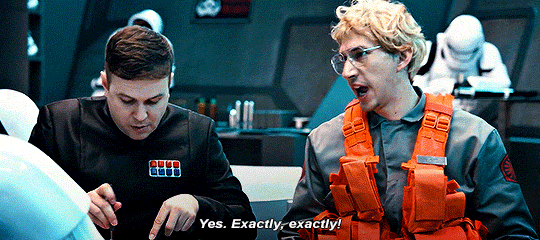
Incidents such as Hurricane Sandy in September 2012 have shown how disaster response teams can leverage the “power of collective intelligence” given by social media, which members of the public can use to share critical information, correct misinformation and dispell rumours that have the potential to hinder efforts to restore critical services in affected areas.
During Hurricane Harvey in southern and eastern America, 911 call centres were inundated with calls and first-responders struggled to identify, find and then reach the thousands in need of evacuation. So Twitter and Facebook played a vital role in mobilising volunteers, connecting with rescuers, and helping those scared and potentially in danger not feel so alone. This was “social media at its best," according to Chris Dessi, a social media expert. He said the barrage of social media pictures, videos, and posts helped those both in and well outside the path of the hurricane to understand what is happening perhaps better than during any natural disaster before.
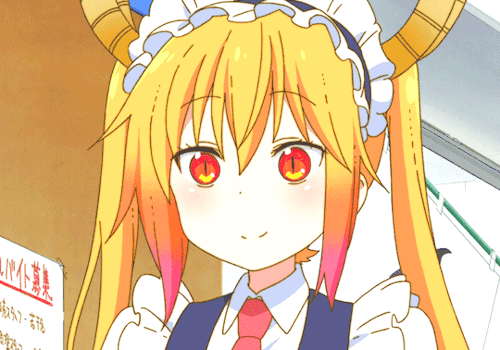
So even though data reporters and social scientists are still experimenting with how to verify the data on crowdsourced platforms to present clean and reliable information, there are obvious examples of natural disaster incidents around the globe that have truly benefitted from crowdsourcing as an emergency management tool.
And so I guess I grudgingly accept that while I will still continue to be traumatised by the awful things I’ve seen and will see on social media, there are advantages in having immediate information so readily accessible as an alert, warning or even just awareness post.
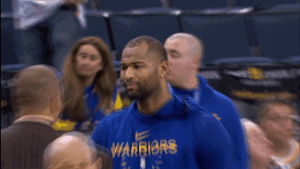
0 notes
Photo

Here’s Elizabeth Bennet
Please do not remove credit 🧡
Instagram @jennapaddey
4K notes
·
View notes
Photo

“You might belong in Hufflepuff, Where they are just and loyal, Those patient Hufflepuffs are true and unafriad of toil” ― J.K. Rowling, Harry Potter and the Sorcerer’s Stone
3K notes
·
View notes
Text
Whatta TROLL
Raise your hand if you’ve ever been subject to bullying.

Yeah, me too. Now, how many people have been bullied online?
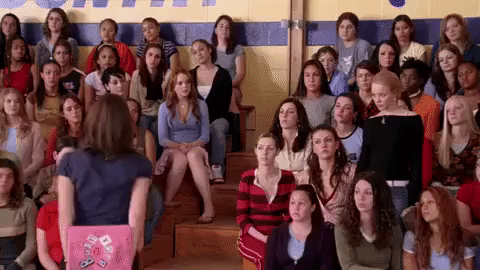
The sad reality is that it’s is so much easier to bully and be bullied via online platforms. Why? Because of the anonymity. Hiding behind the mask of your computer screen seems to give people a shot of confidence in making other people feel like crap. Is it a pride thing? Is it a popularity thing? Is it an I-hate-myself-so-I’m-going-to-make-others-hate-themseves thing? Honestly, it could be all of those, none of those or just one of them.
My friends, these people who have posted something or tweeted something or snapped something that gnaws at your heart and brain, or simply just gets on your nerves - that person is called a troll. A rightful TROLL.

No, not these slightly-cute but mostly-terrifying old creatures. Cambridge University defines a troll as someone who leaves an intentionally annoying message on the Internet, in order to get attention or cause trouble.
They may have been given a light-hearted name, and the phrase ‘cyberbullying’ is so overused these days, but the fact of the matter is this is a real issue with real consequences.
About 58% of kids have had someone say hurtful things to them online and only 1 in 10 will inform a parent or trusted adult of their abuse, according to DoSomething.org. And the name of this company is absolutely fitting - we need to freaking do something!
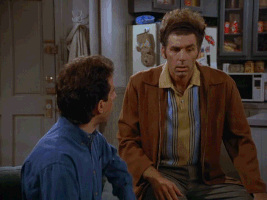
Unfortunately, with the rise and prevalence of social media in our daily lives, trolling is not something we can ever truly be free of. However, there are so many things we can do to help deal with trolls.
Firstly, our social media platforms need to establish a policy for user comments. We need clear detailing of what comments are allowed and any comment that breaches that should not be given a platform. We don’t have to approve offensive comments. We can delete comments. We can ban members. But we have to be proactive about these policies. There can’t be a ‘report comment’ feature if nothing is going to be done about that complaint in the VERY NEAR FUTURE.
Popular social media sites should have a team of moderators to monitor activity on the site and they should have the power to approve or remove inappropriate comments. They should have the power to unmask the trolls! Trolls thrive on anonymity and so if we take away that power, trolls will think twice about leaving nasty comments.
Ultimately though, we need to create a single unified digital community where members monitor themselves and look out for their fellow digital citizens. When a troll appears, the community should take matters into their own hands and drive off the trolls themselves. Let’s stop waiting for authorities and officials - let’s be those authorities and officials!
90% of teens who have seen social-media bullying say they have ignored it - this is an outrageous statistic and we need to work on this! Instead of sitting around complaining and blogging about these issues (yes, that was a dig at myself), we need to actively fight back! Let’s take a stand against online trolls and END CYBER BULLYING FOR GOOD!

...
Well that turned into a political rally real quick...
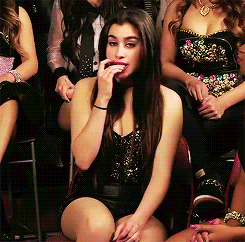
Oopsie.
0 notes
Text
students skipping school to demonstrate for our planet

1K notes
·
View notes
